Kate Atkinson Quotes & Sayings (Page 3)
Kate Atkinson quotes and sayings page 3 (author). Here's quote # 21 through 30 out of the 42 we have for her.
“My highest point was the first thing I won, a short story competition in a women's magazine in the Eighties. It was the first time I'd had my writing validated, and the first thing I'd ever shown anyone else.”
“I'm trying to take more nothing time - and that means sacrificing doing. It's partly to do with age, partly to do with the fact that writing takes up a lot of space in your head. My ideal is to go back to when I was a child. My life is quieter than it used to be. More and more I don't really want to talk to people. I'd make a good nun, actually.”
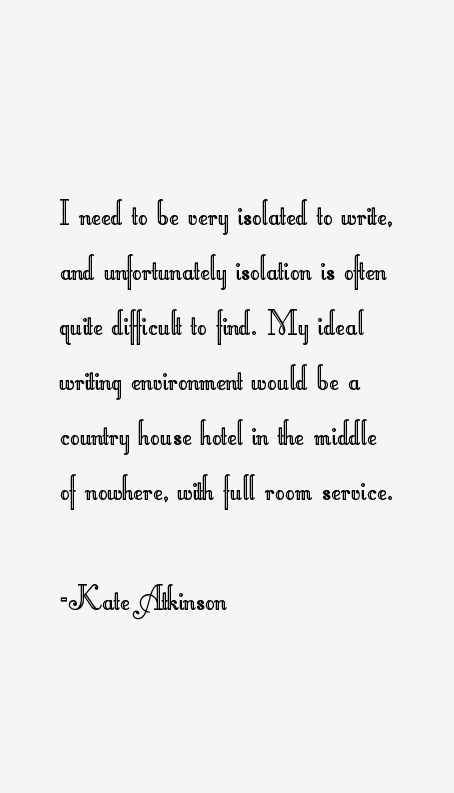
“I need to be very isolated to write, and unfortunately isolation is often quite difficult to find. My ideal writing environment would be a country house hotel in the middle of nowhere, with full room service.”
“Like many writers, I started by writing short stories. I needed to learn how to write and stories are the most practical way to do this, and less soul-destroying than working your way through a lengthy novel and then discovering it's rubbish.”
“When I started 'Case Histories,' the characters were all going to Antarctica on a cruise. The first part was called 'Embarkation.' It was supposed to be about everyone preparing to embark on the cruise, but it mushroomed into an entire book.”
“I'm a lapsed Quaker. I don't go to meetings any more. But I'm very drawn to Catholicism - all that glitter. I'd love to be a Catholic. I think it would be fantastic - faith, forgiveness, absolution, extreme unction - all these wonderful words. I don't think anyone who was ever born a Catholic hasn't died a Catholic, no matter how lapsed they are.”
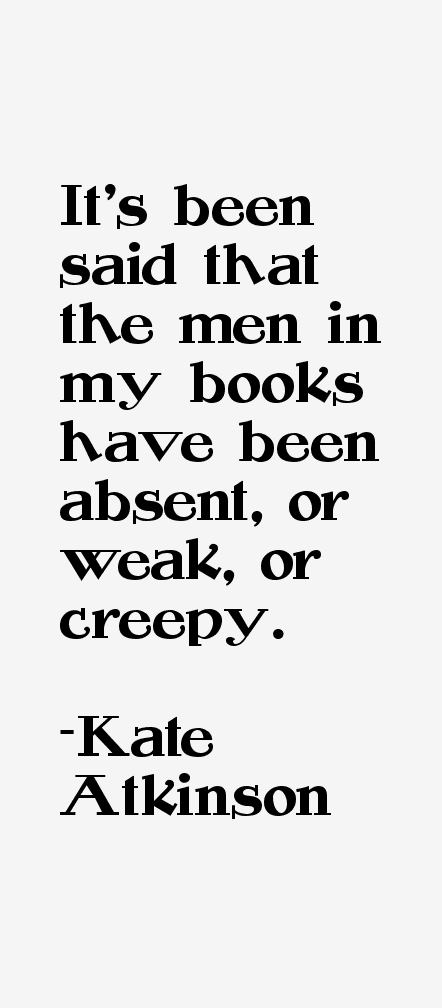
“It's been said that the men in my books have been absent, or weak, or creepy.”
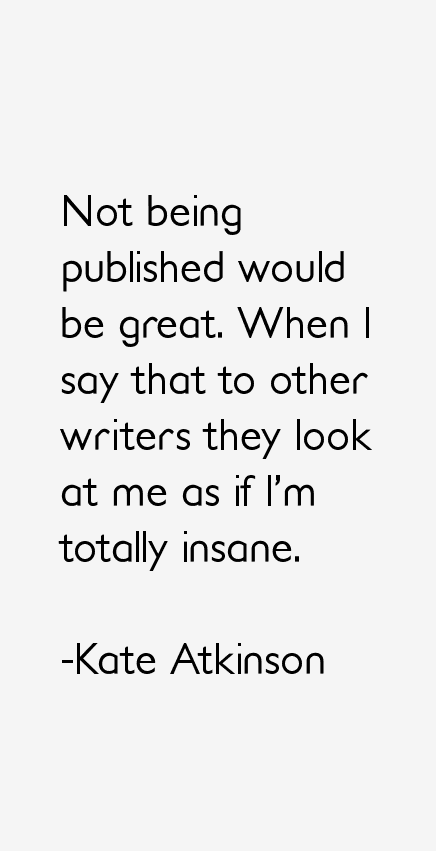
“Not being published would be great. When I say that to other writers they look at me as if I'm totally insane.”
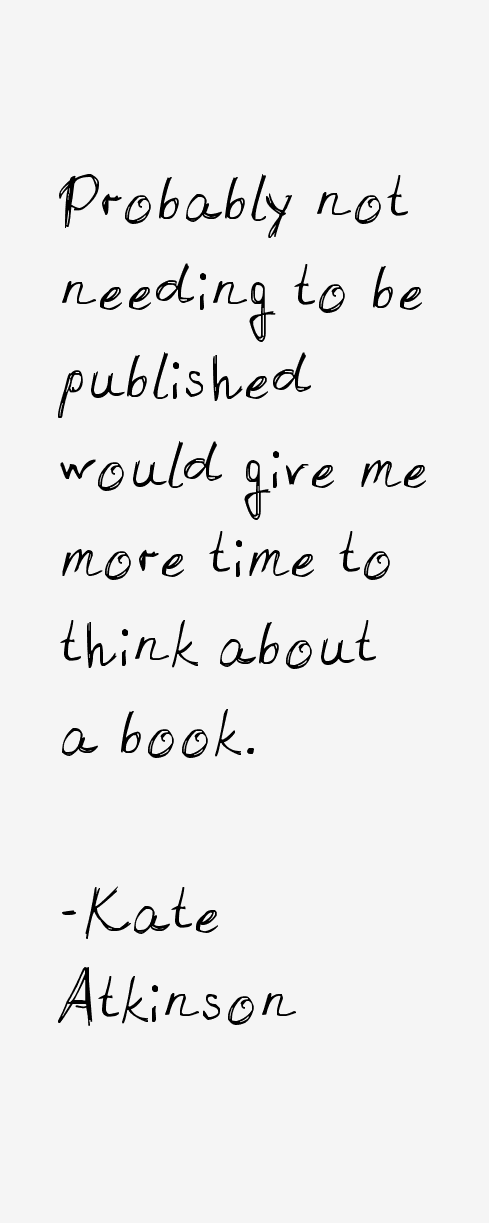
“Probably not needing to be published would give me more time to think about a book.”
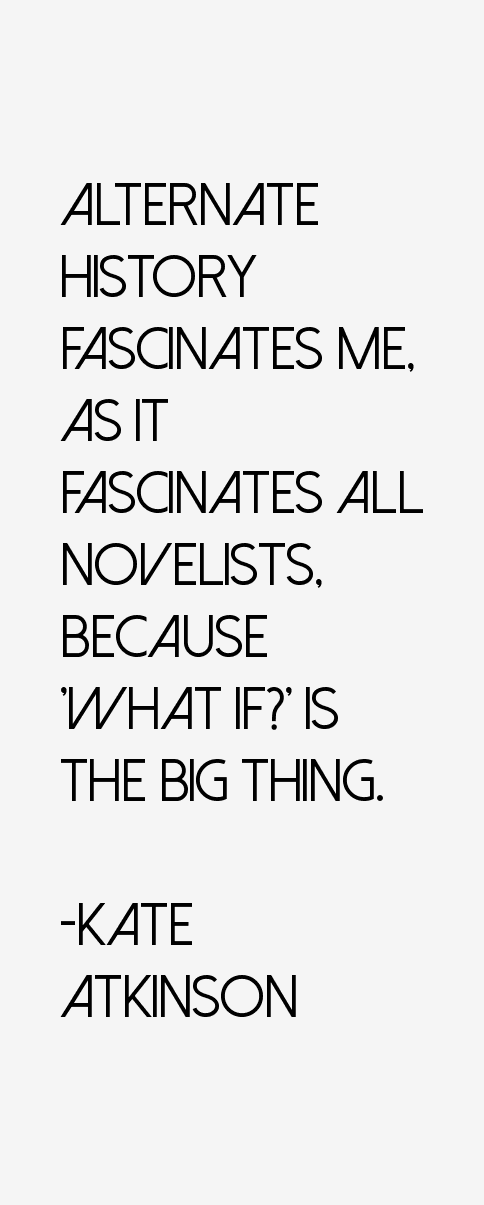
“Alternate history fascinates me, as it fascinates all novelists, because 'What if?' is the big thing.”
Kate Atkinson Quotes Rating
No Ratings Yet
Leave A Comment
























